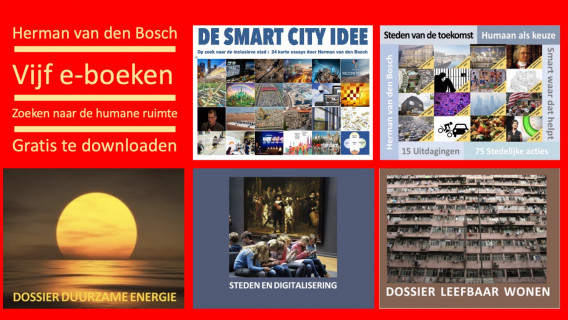Each of the ebooks I've compiled from my blog posts and other publications contains essays on how to make our environment more livable and humane. Anyone can download these ebooks for free. There are also print-friendly versions available and most are available in English and Dutch. Below you will find an overview with links to all of them:
eBooks on how to create better streets, neighborhoods and cities





